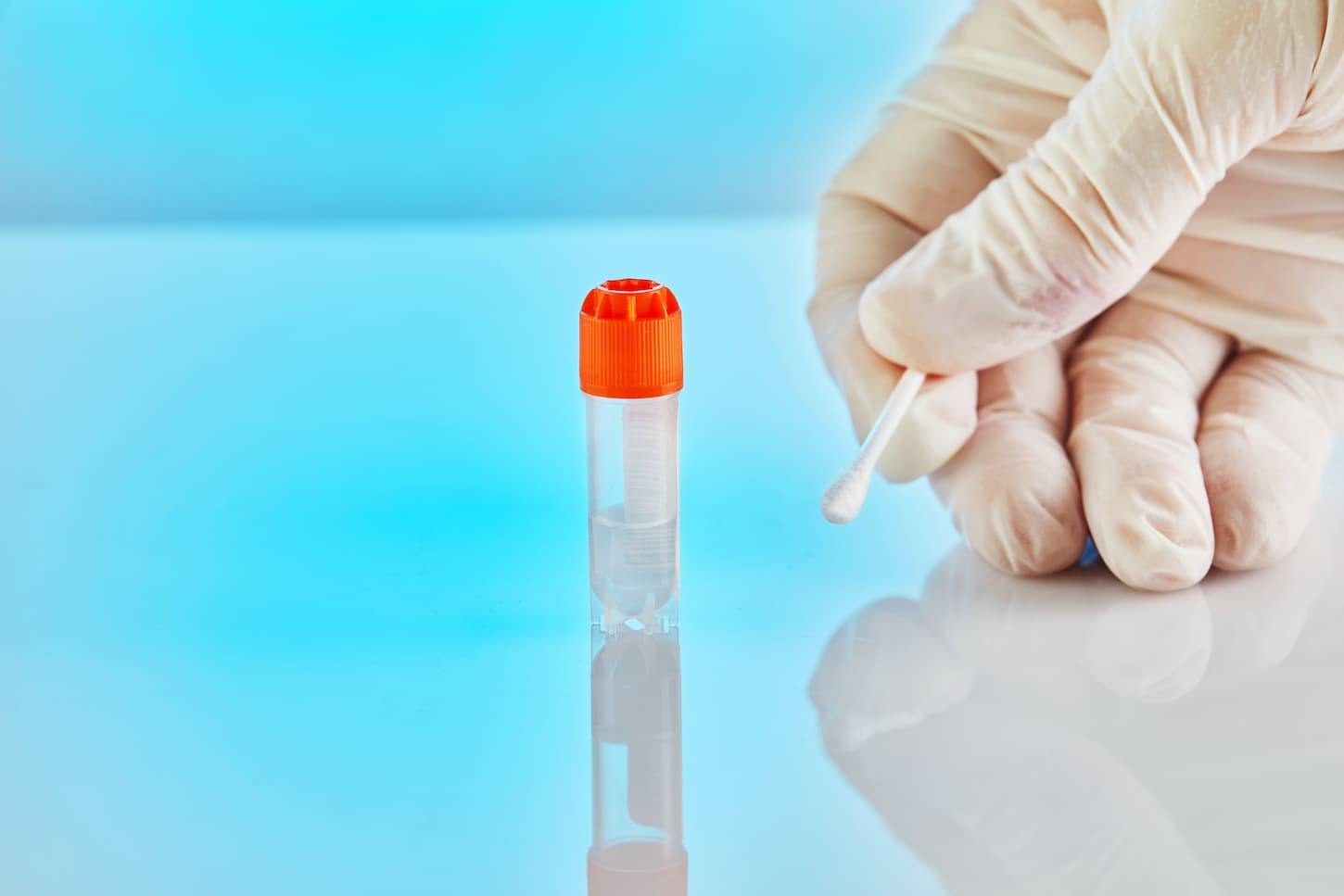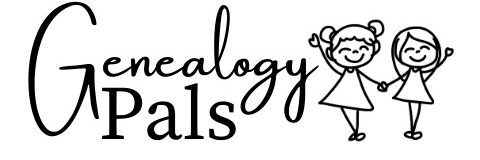Can DNA tell us who we are or where are we from? We live in a fascinating time where a drop of blood can answer these questions. Although, the answer might not be what you expect. Even so, let’s ask it: can a blood test show ethnicity?
Blood tests (and DNA tests) cannot prove cultural and social ethnicity, but they can show genetic similarities to other people who lived in a similar place throughout history. In this way, many people can infer and estimate ethnicity and heritage even though the DNA test doesn’t prove it.
Our genes are way more complicated and interesting than checked boxes. Genes do identify a person, but there is no genetic significance and meaning of ethnicity or race. Just because your DNA says you are in relation with several people who live in a certain place, it doesn’t mean that you are from that place genetically.
It is fun to find out your family heritage and who were your ancestors. But if you want to learn a little bit more about the actual science behind this, then keep on reading!

Can Genetic Testing Determine Ethnicity?
Ethnicity can’t be detected by DNA tests but it can be estimated using comparisons to other DNA samples. These estimates improve continually as the DNA database and sample size increase and scientific understanding increases.
Ethnicity refers to a shared ancestry that is based on cultural and social practices. Ethnic groups can be connected by shared linguistic or religious heritage or geographical origin.
Usually, though, there is an overlap with the person’s ancestry. For instance, people with the same heritage usually live in the same places, and usually, they marry people from the same background.
DNA testing companies use DNA samples from present-day people to estimate DNA ethnicity. Samples are gathered from people with strong roots in a certain location.
The next step is analyzing the reference samples by putting them into a predetermined number of genetic clusters. These clusters have names based on the existing countries they represent.
The clusters will surely have somewhat overlap because the DNA isn’t limited to current political borders. This means, for example, a Spanish cluster may include people from North-West European countries.
In the end, your DNA is compared with the reference population. Based on your matches, you get the percentages. The trick is you are matched to the populations represented in the database.
How Accurate Is the Ethnicity Test?
DNA ethnicity tests are fairly accurate at the continental level and are more accurate for people of European ancestry than for people of Asian, African, or non-European heritage due to testing emphasis on Europe. Results for all people should improve as the database expands.
So while the results are pretty accurate, it’s only on the large, continent-scale that it’s most accurate.
The ancestry proportions with big percentages are of course, more trustworthy. If your DNA test shows that you are 10% Italian, and you don’t have any ancestry from Italy, maybe wait on buying the plane ticket for Italy just yet. The thing is, these percentages change when the company updates the data based on an expanding DNA database.
These are not hardcore facts, after all. These are estimations and they change when new data enters the system.
It’s not that I changed from being 25% Swedish overnight; it’s that the DNA database improved so that my DNA now matches Swedish markers with a score of 27%. Or maybe all those Swedish language lessons are finally paying off, and my DNA is changing? No way. It’s definitely better data!
What Is the Difference Between Race and Ethnicity?
Ethnicity refers to cultural and social heritage, and race refers to human-defined physical traits. These two terms are often misunderstood. Both are social constructs and have no basis in genetics.
Race
The race is linked with physical traits like skin color, or hair, this is a popular belief. Even so, people with similar physical traits can be of a different race. If someone’s race is White for example, people will have the choice to identify with their individual ethnicity more than their race. Or vice versa.
Scientists say that there are only individuals, not races. If certain features exist in one area, it only means that those features were passed on more regularly in that area. Because of those features, genetic distinctions can be used to follow the movements of populations all over the world. So, according to that, there is no genetic sign that makes someone a different race.
Ethnicity
Ethnicity categorizes an ethnic group according to its cultural and social expressions. Here is a little puzzle for you: if someone identifies their race as Black, their ethnicity might be German, or if someone’s race is White, their ethnicity might be French.
Historically, the term ethnicity was used as a synonym for the race. This is not the case anymore. Ethnicity is different from race and individuals can identify as they wish. They can decide if they want to express their cultural practices.
However, both terms are social constructs used to characterize different populations. Trying to put people into “races“ is, as a matter of fact, inaccurate. These concepts are human creations and don’t have a basis in genetics.
So, what can we test, race or ethnicity? Or is something else an answer?
Can a DNA Test Show My Ancestry?
Ethnicity and race are two constructs connected to human ancestry. Ancestry organically joins society and genetics. People have a huge desire to find out their ancestry and their identity.
As we mentioned earlier, genealogy companies have found a way to discover our ancestry. DNA ancestry tests help you learn a little bit more about your family roots. However, use only tests that are validated by scientists.
We’ll cover the valid types of tests here really quickly, but make sure you read our article on the best DNA tests here for all of the nitty-gritty details: Which Genealogy Test is Best? (Answers and Why).
Types of DNA ancestry tests
Here are a couple of different DNA tests to consider that are available.
Autosomal DNA test
Autosomal DNA tests are the type of tests that most people do. This test analyzes the 22 pairs of chromosomes that you inherited from both of your parents. Anyone can do these tests and the results will give you more information on your relationship with others on both your maternal and paternal sides of your family.
Mitochondrial DNA test
Mitochondria are the structures in living cells that provide energy. These structures can be tested thanks to their own mitochondrial DNA. This test is performed on males and females so it gives you a more accurate and detailed result, but the results are about the maternal side of your family only.
Y chromosome test
Y chromosome testing is only used to test a direct male line. This ancestry test is usually performed to confirm if two families with the same surname are related.
Single nucleotide polymorphism test
SNP testing is used to estimate DNA from many variances across the set of genes. This testing will provide more information about your ethnic background.
Again, this was info on the DNA tests quickly. Refer to the article we wrote on genetic tests if you want more detailed information. Here’s the link again, because convenient is awesome: Which Genealogy Test is Best? (Answers and Why)
Why Take an Ancestry Test?
There are various reasons to take an ancestry test like:
- Discovering your ancestry. Did you know that DNA tests can track lineage up to 10 generations back? This is a great way to find out more about your ancestor’s origin. If the results are precise, you can also discover if you have any relatives, living or deceased.
- Establishing paternity and other biological relationships. This one is a no-brainer and is one of the most common reasons why people use this test for paternal disputes. A child’s DNA is compared to a father’s. If the test shows a 99.9% match, the paternal dispute is considered solved. Note: that’s right: 99.9% and not 100%. Even DNA has some wiggle room, thanks to how DNA recombines and goes wonky during reproduction.
- Medical research. Thanks to DNA tests, doctors can find out if you are inclined to certain medical conditions. Some tests can show if you are prone to certain genetic disorders. This way, your doctor can offer you better treatment options.
- Forensic science. Like in the tv shows, at crime scenes the investigators will take DNA samples like nails, hair, blood, etc. The DNA will be analyzed to solve the crime successfully. Just like our fingerprints, our DNA is unique.
How to Increase DNA Ancestry Accuracy?
The more data, the more accurate the DNA test is. There is a whole range of DNA sequences. The more DNA sequences there are of the person from your ethnic group, the more accurate the test results will be.
There is another thing also. The accurate test depends on the certain level of mixture in your lineage. If your background is more heterogenous, the more difficult will be to trace your family roots. So, once again, the more data the more accurate the DNA test results will be.
Conclusion
Overall, a DNA test can’t show ethnicity. At least, not in the way we think. The issue is there is no complete database of the whole world’s DNA samples. Different genealogy companies have different approaches to collecting DNA samples. This is why you may have different results.
Let us say, that you are a descendant of Napoleon. There is an insignificant chance that you have his DNA. Napoleon’s child had probably 50% of his DNA. But within 10 generations, his DNA has scattered around and mixed so many times that even if you’re a direct descendant, you may have 0% of his DNA.
You inherited half of your DNA from your mother and half from your father. But there is a possibility your mother didn’t pass you all the genes she inherited from.
We are all in search of our identity. Biology, unfortunately, can’t provide us with one. The test won’t tell you who you are.
Next Steps
What we have learned is that DNA ancestry tests can’t tell us what language our ancestors spoke, what food they ate, how they traveled, or how they lived. Human history is way more complicated. Relying on a drop of blood to reveal all of the secrets is impossible.
We always prefer to focus on the families that are here with us. But we also encourage playing a detective a little bit, so why not! Investigating our family history is so much fun and it is something you can do with your family together.
It is an essential human desire to know our roots. Don’t forget, no matter what your DNA results are, it changes nothing how you self-identify.
Ready to read more on DNA, genetics, and family history? Make sure you read this article we wrote next: DNA Explained: How Many Generations Back is 1%?

Resources
When learning about genealogy, it’s important to learn from various reputable sources. These are the sources used in this article and our research to be more informed as genealogists.
- ABC News. “What Can a DNA Test Actually Reveal about Your Ancestry?” ABC News, 1 Apr. 2019, www.abc.net.au/news/2019-04-01/genetics-ancestry-dna-tests/10954938.
- Bryce, Emma, and Stephanie Pappas. “What’s the Difference between Race and Ethnicity?” Livescience.Com, 9 Apr. 2022, www.livescience.com/difference-between-race-ethnicity.html.
- Empire, and Jack Herrera. “DNA Tests Can’t Tell You Your Race.” Popular Science, 26 Apr. 2021, www.popsci.com/story/science/dna-tests-myth-ancestry-race.
- Law Office of Walter M. Reaves, Jr., P.C. “Identifying Race through a Blood Test.” Law Office of Walter M. Reaves, Jr., P.C., www.reaveslegal.com/blog/identifying-race-through-a-blood-test.cfm. Accessed 17 Apr. 2022.
- Lawton, Georgina. “‘It Made Me Question My Ancestry’: Does DNA Home Testing Really Understand Race?” The Guardian, 30 July 2020, www.theguardian.com/lifeandstyle/2018/aug/11/question-ancestry-does-dna-testing-really-understand-race.
- Letzter, Rafi. “I Took 9 Different DNA Tests and Here’s What I Found.” Livescience.Com, 5 Nov. 2018, www.livescience.com/63997-dna-ancestry-test-results-explained.html.
- “Race and Ethnicity Have No Real Biological Meaning.” Business Insider, 20 Nov. 2015, www.businessinsider.com/what-genetic-testing-can-tell-you-about-race-or-ancestry-2015-11?international=true&r=US&IR=T.
- “What Is Genetic Ancestry Testing?: MedlinePlus Genetics.” Medline Plus, medlineplus.gov/genetics/understanding/dtcgenetictesting/ancestrytesting. Accessed 17 Apr. 2022.
- Zachos, Elaina. “These Six Strangers Are Connected Through a Shared Ancestry.” Magazine, 3 May 2021, www.nationalgeographic.com/magazine/article/race-genetics-geno-dna-ancestry.

